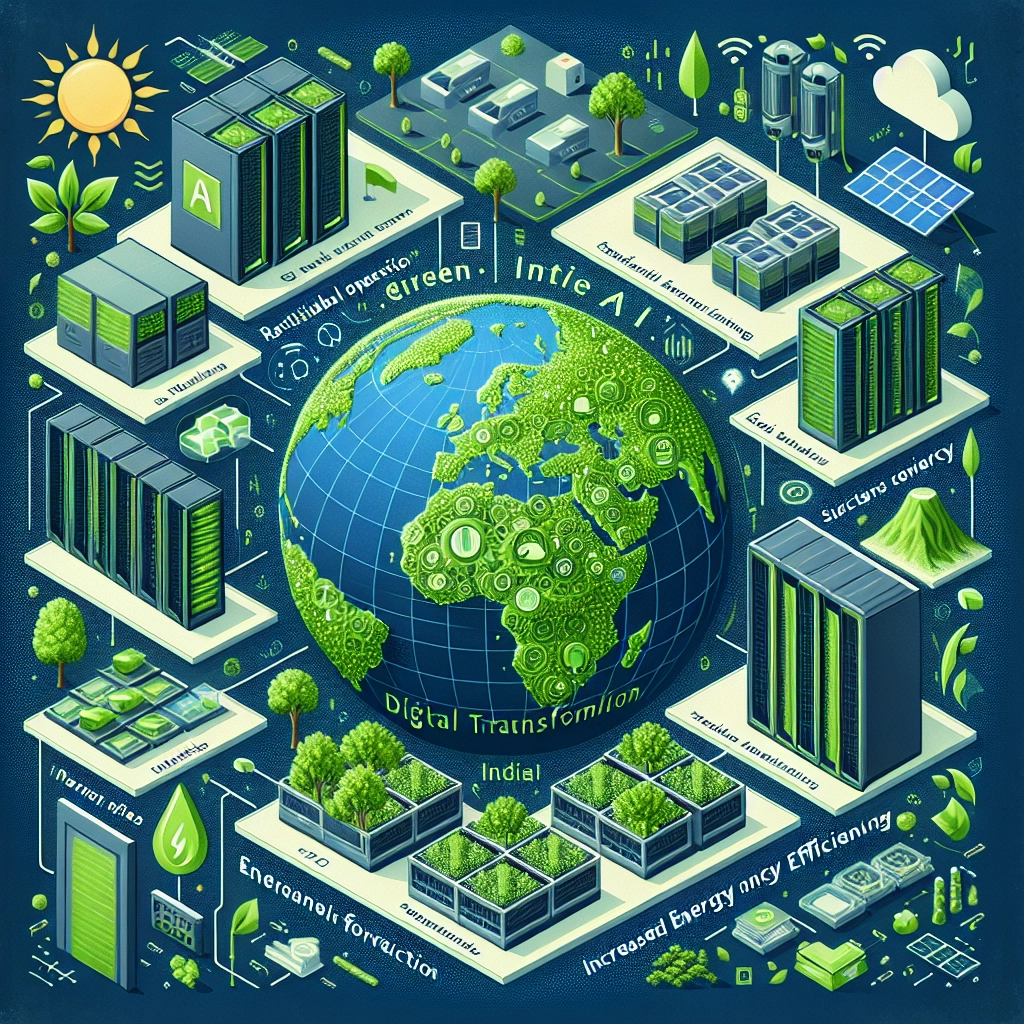The carbon footprint of a single run for AI training can surpass the combined lifetime emissions of five cars. In India’s swiftly evolving digital landscape, where AI usage is growing faster than in any other Asian nation, a transformative solution is emerging that could reduce energy consumption in data centers by as much as 70%. This is the advent of serverless AI inferencing, merging computational efficiency with ecological responsibility.
The Energy Crisis in India’s AI Revolution
India is facing a dire situation. The nation’s ambitious IndiaAI Mission, initiated in 2024 with a significant budget of ₹10,300 crore aimed at building one of the largest AI compute infrastructures featuring 18,693 GPUs, might come at a heavy environmental cost.
Data centers are notorious for their energy and water consumption. According to the International Energy Agency (IEA), these facilities consumed approximately 1-1.5% of global electricity (around 300 terawatt hours) in 2022. This figure is projected to escalate to 8% by 2030. For AI specifically, the estimated increase in electricity demand from AI-centric data centers is expected to quadruple by the end of this decade, dramatically impacting energy resources.
The Traditional Computing Paradigm: A Resource Utilization Crisis
Conventional data centers function based on a flawed principle: they maintain infrastructure that is always on, regardless of actual demand. This model leads to chronic underutilization of resources, fixed infrastructure costs, excessive thermal management overhead, and wasted memory and storage.
Serverless Inferencing: The Paradigm Shift
Serverless computing changes the way resources are allocated. In AI inferencing, this approach fosters energy efficiency through key mechanisms:
- Dynamic Resource Scaling: Resources scale based on actual demand, minimizing idle capacity and energy waste.
- Quantified Energy Savings: Research indicates serverless computing can lower energy consumption by up to 70% and operational costs by approximately 60%.
- Architectural Optimization: This model reduces compute energy usage substantially by implementing micro-second-level billing, cold-start optimizations, and machine learning-driven auto-scaling.
Technical Implementation Framework for Indian Enterprises
Companies can leverage various strategies such as quantization, edge-cloud hybrid deployments, and batch processing optimizations. Proper infrastructure architecture involves using Function-as-a-Service (FaaS) design patterns and container orchestration tools to facilitate maximum scalability and efficiency.
Challenges and Mitigation Strategies
Despite its advantages, serverless computing introduces challenges around cold start latency and the complexity of function proliferation. Strategies such as predictive pre-warming and standardized CI/CD pipelines can help mitigate these issues.
Economic Impact Analysis for the Indian Market
A cost-benefit analysis reveals that the implementation of serverless systems can yield significant savings. For example, a 100 GPU cluster operating traditionally incurs ₹2,40,000 in energy costs per month, while a serverless model can reduce this to ₹72,000.
Future Roadmap: Sustainable AI in India
With initiatives like the National Mission on Interdisciplinary Cyber-Physical Systems, the Indian government can encourage policy-driven energy-efficient AI technologies. Future technological advancements may also involve hybrid serverless-edge architectures and enhanced quantum-classical integration.
Conclusion: The Sustainable AI Imperative
India’s pursuit of digital growth must consider the environmental ramifications of unchecked computational power. Serverless inferencing is not merely a technological upgrade; it signals a vital shift towards responsible innovation. By realizing energy reductions and cost savings, organizations can emerge as leaders in the transition towards carbon-neutral computing.
The imperative for Indian enterprises is clear: adopt sustainable AI practices swiftly. As serverless models optimize resource use and minimize waste, the path to a sustainable future is illuminated, emphasizing not just AI capabilities but also their responsible deployment.
Welcome to DediRock, your trusted partner in high-performance hosting solutions. At DediRock, we specialize in providing dedicated servers, VPS hosting, and cloud services tailored to meet the unique needs of businesses and individuals alike. Our mission is to deliver reliable, scalable, and secure hosting solutions that empower our clients to achieve their digital goals. With a commitment to exceptional customer support, cutting-edge technology, and robust infrastructure, DediRock stands out as a leader in the hosting industry. Join us and experience the difference that dedicated service and unwavering reliability can make for your online presence. Launch our website.

